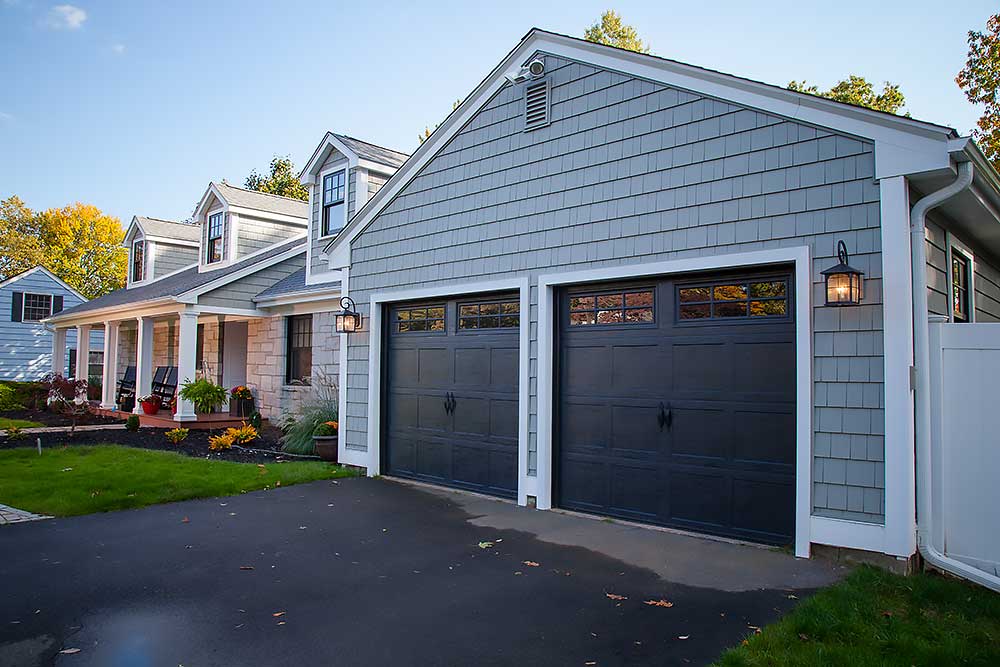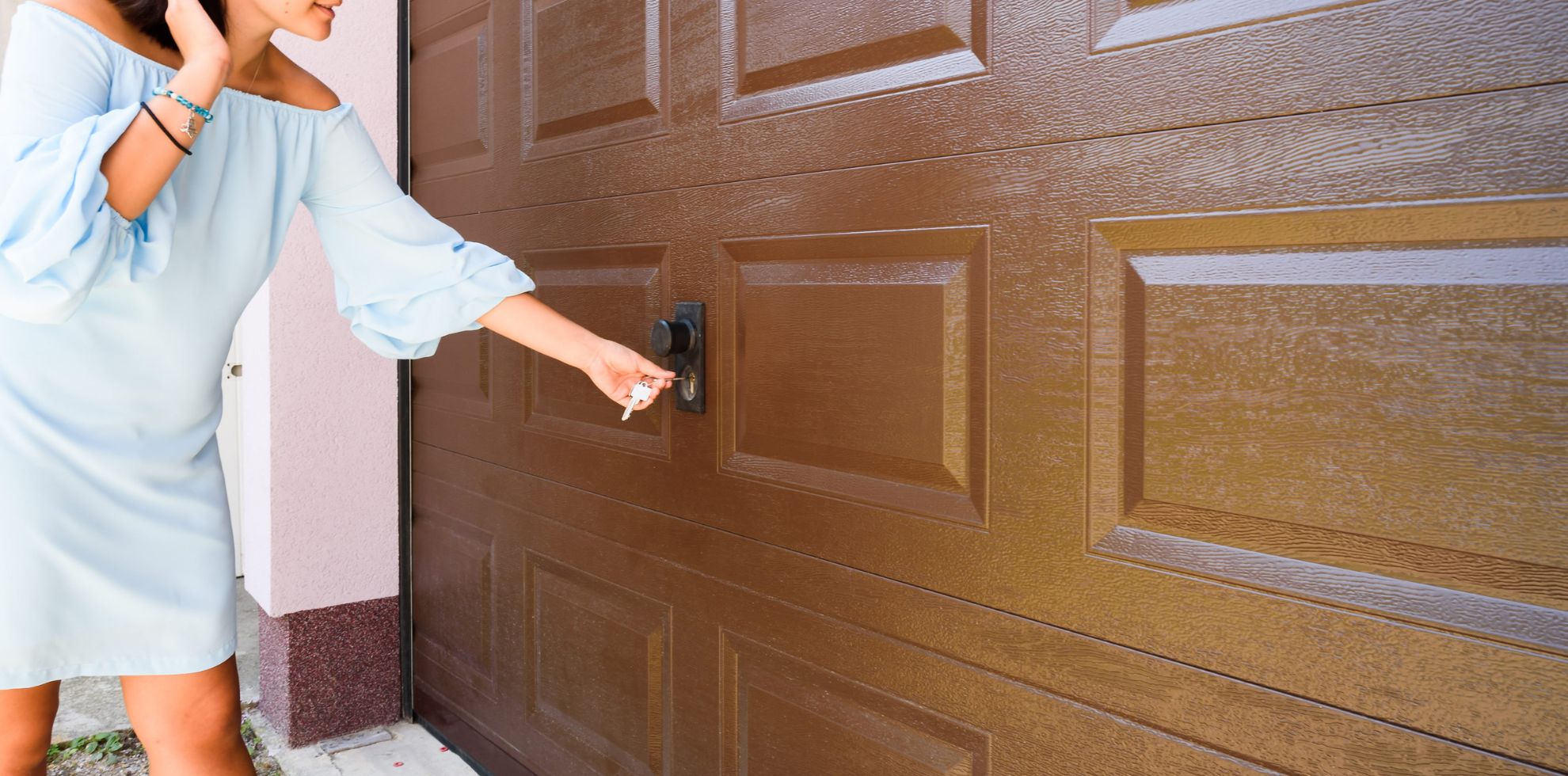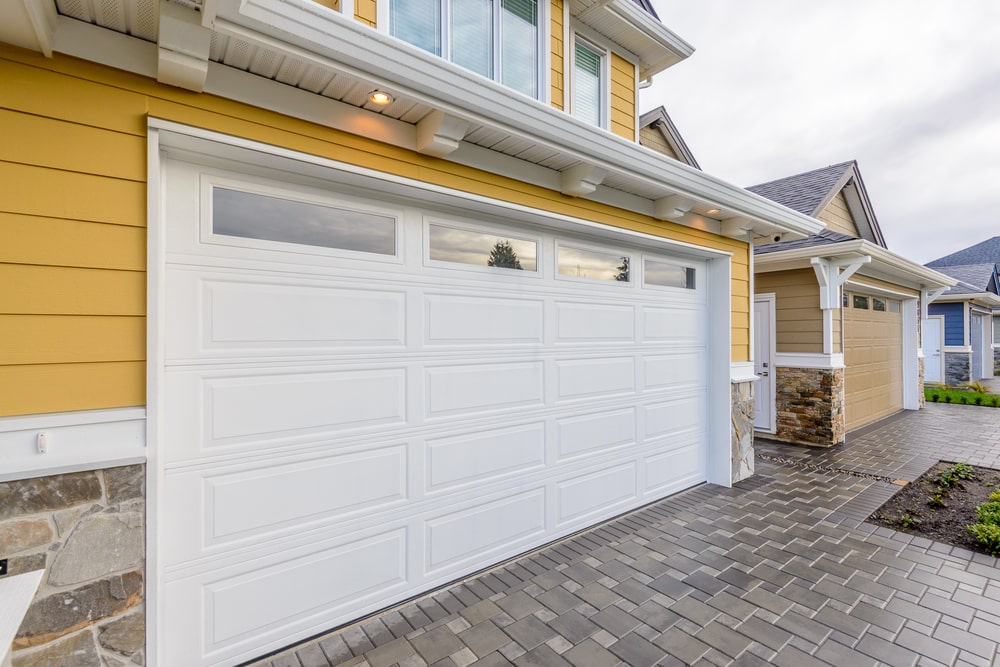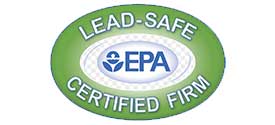
Garage Door Repair: Dealing With Salt Damage
Many people take their garage door for granted. They don’t even consider that it needs protecting until there’s already some damage or stain on it — and then it’s too late. Salt damage can occur in any part of the country; in places where the snow falls early and stays until spring, salt is very commonly used to melt ice and snow faster. But this means that if your garage door isn’t protected, there’s a good chance that it will be exposed to salts and other chemicals like chlorine which could potentially damage the door.
What Is the Source of Salt Affecting Your Garage Door?
The main source of salt affecting your garage door is the road. The roads are filled with salt to prevent freezing and snow on the road. As the vehicle passes over, the salt remains on the road and settles in your garage door. This can damage your garage door and may cause rusting hence the need for garage door repair.
Rain
Rain water contains minerals that can build up on the surface of your garage door. This can lead to metal parts’ corrosion and prevent the door’s smooth movement.
Water Near Your Garage Door
Water is a big culprit for rusting and corrosion on garage doors. Water will cause the metal to rust and corrode, leading to various issues, including dents, cracks, and even worse. If you have water near your garage door, you should immediately have a repair person come out and inspect your door for any damage that may have been caused by water. Once they have inspected it and deemed it safe to operate, they will be able to fix the problem so you can continue using your garage door without worry.
Snow Removal Chemicals
Another source of salt that you should be aware of is a salt-based ice melt product used around your home. These products are used to melt ice and snow from walkways, driveways, sidewalks, and steps. They are also used to prevent ice from forming on your deck or patio. Unfortunately, these products can also be very damaging to your garage door if not applied correctly by the manufacturer or user.
What Can Salt Do to Your Garage Doors in Long Beach?
The salt in the air can cause significant damage over time, especially if you live in an area that is prone to snow or ice storms. Salt can ruin the finish on your steel garage door, so you will need garage door repairs; below are some damages you can find on your garage door.
Salt Can Eat Away at the Paint on Steel Garage Doors
Salt is a corrosive substance that can eat away at the paint on steel garage doors. This is because the salt will get into the pores of the steel and begin to rust it. If you live in an area where there is a lot of snow, then you need to be careful about how much salt you use on your driveway.
Salt Is Corrosive to Steel, Including Steel Garage Doors
Salt is an electrolyte that has a strong affinity for water molecules. This means that it dissolves into water easily and makes its way into your garage door’s crevices and openings. Once inside, it begins to attract other minerals and metals present in the air (such as iron oxide) to form a chemical compound called ferric sulfate (FeSO4). The ferric sulfate combines with moisture from rain or snow or even from nearby plants to form crystals which begin to eat away at the steel itself through a process known as galvanic corrosion.
The Steel Becomes Less Malleable, Causing It to Crack
When you have a piece of steel that has been exposed to salt water and then heated up, the salt will begin to leach out of the metal. The longer it stays in contact with the hot steel, the more salt will leach out. Salt can make your steel door more vulnerable to extreme temperatures and other factors that may cause it to crack. This is what happens to doors of poorly maintained long beach garages.
How to Protect Your Garage Door From Salt and How to Conduct a Garage Door Repair
Garage doors are made of metal, which means they can withstand a lot. However, they still need to be cared for and protected from harsh elements like salt. The best way to protect your garage door from salt is to take action before it becomes a problem. Here are some tips on how you can protect and repair your garage door from salt:
Seal the Garage Door
Sealing your garage door involves applying a coating to its interior and exterior surfaces. You might be wondering why sealing your garage door is such a big deal. The truth is that it’s not just about aesthetics — sealing your garage door will help protect it from wear and tear caused by salt over time. This helps extend its lifespan, so you don’t have to replace it as often.
Apply a Moisture Barrier
A moisture barrier is an impermeable film or sheet that prevents water from entering the garage door itself. The barrier sits between the outer surface of the garage door and its insulation. To install a moisture barrier, simply peel off the release paper from one side of the film and stick it to the underside of your garage door insulation. Then peel off the release paper on the other side of the film and stick it to the top surface of your insulation.
Keep the Floor Clean
The best way to protect your garage door from salt damage is to keep the floor clean. If you have a concrete floor or a cement driveway, you may be able to use water on it to wash away any salt that has accumulated on it. If not, try using chemical cleaners designed for concrete floors or driveways. You can also use vinegar if the area is free of oil or grease stains; vinegar will help with garage door repair and remove dirt and grime while also disinfecting the concrete at the same time.
Protect Corroded or Deteriorating Door Parts
First, wash down the surface with a mild detergent and water solution. Then use steel wool to remove any loose paint and rust. After that, rinse the surface with clean water again and let it dry thoroughly before applying an epoxy coating.
Oil the Door Parts When Needed
Oil moving garage door parts like the garage door opener once a year to keep it in good working condition. If you live in a coastal area, where wind and rain can quickly whip up sea spray and sand, you may need to oil your door more often than that. To protect your garage door from salt, apply mineral oil to all of its moving parts. This will help keep them from rusting or sticking together; hence you will not need a garage door repair.
Use a Silicone Spray
One of the most effective ways to deal with salt effects is using silicone spray when having a garage door installation. The silicone will prevent any damage to your garage door caused by the salt, and it will also help protect the paint on your car. You can find silicone sprays at most hardware stores or home improvement stores. There are many different brands and types, but they all perform essentially the same function: they coat the surface of whatever you’re spraying with a thin layer of silicon that prevents corrosion.
Use WD-40
Apply WD-40 or similar spray to exposed metal areas of your garage doors long beach, such as hinges, tracks, springs, and rollers, before applying de-icer to prevent rusting of these parts during the winter months.
Salt is a common ingredient used in ice melt products. However, when you use too much of it or apply it incorrectly, your garage door will take a beating. With that in mind, be sure to take extra precautions to protect your garage door and its components so you can use your door as an entrance and exit throughout the winter season instead of an emergency exit.











